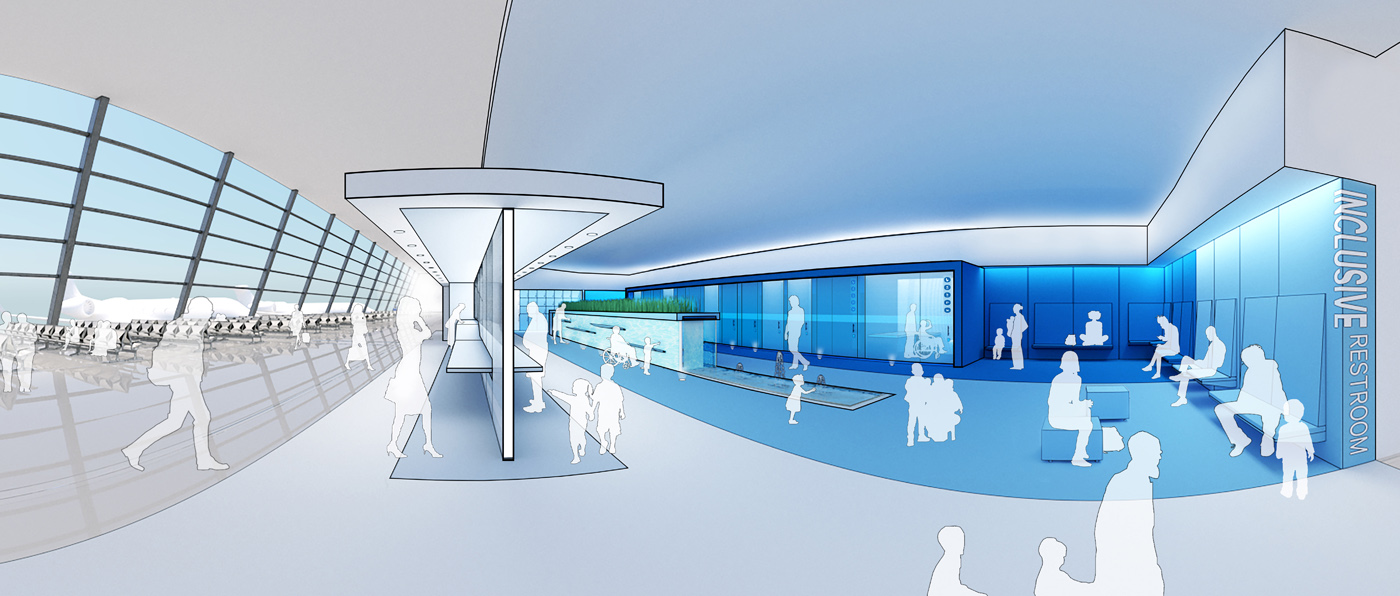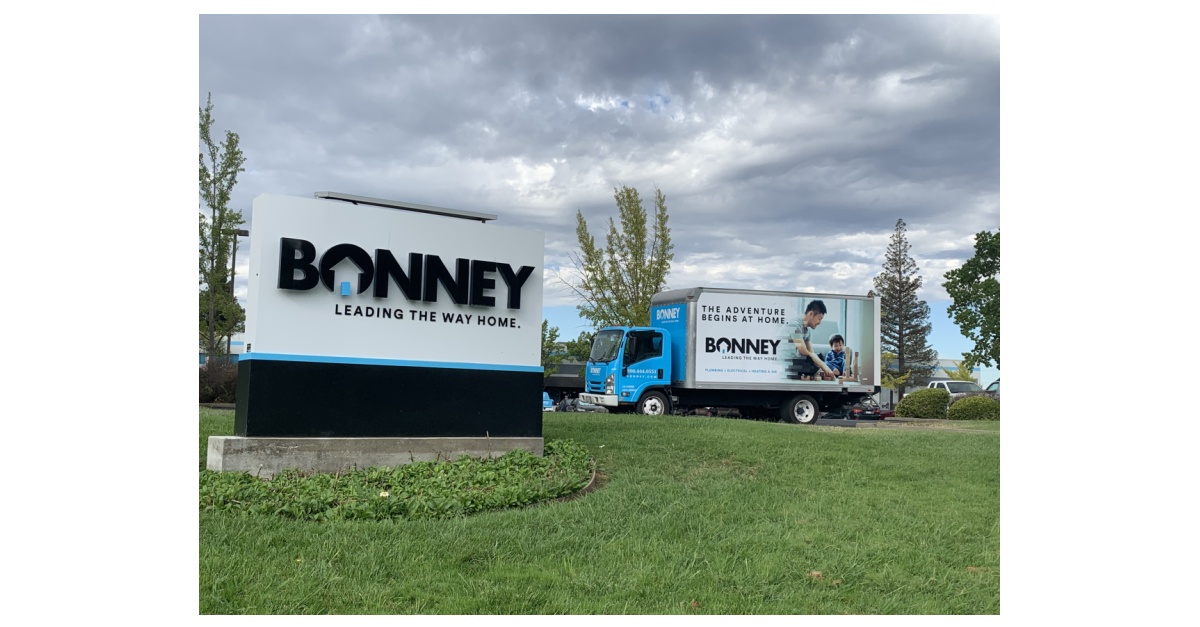Momentary or everlasting homeless housing? A hybrid strategy | David Heitz
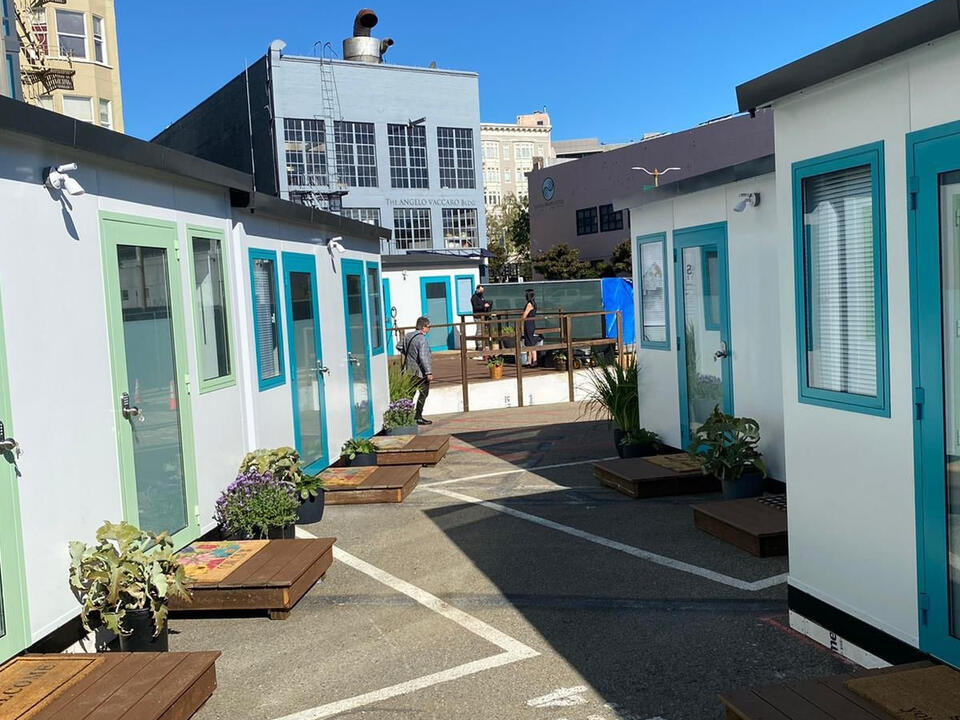
Dignity Moves builds attractive modular homes for people experiencing homelessness.Photo byDignity Moves
Call it the pretty stepsister of safe outdoor spaces.
In the homeless services world, so-called safe outdoor spaces have become popular with cities nationwide. These spaces usually are comprised of pallet shelters or tiny homes, but Denver has even used ice fishing tents. In Denver, Colorado Village Collaborative runs safe outdoor spaces in Denver. The Salvation Army runs some pallet shelter communities in Aurora.
Safe outdoor spaces have been criticized for resembling concentration camps. Denver Mayor Mike Johnson said Wednesday he intends to place seven to 10 micro-communities at sites around Denver. Each site would consist of tiny homes or pallet shelters, said the mayor’s homeless czar, Cole Chandler. Johnson hired Chandler away from the state. Before that, Chandler worked for Colorado Village Collaborative.
A non-profit called Dignity Moves recently reached out to the author of this story about their operation. They build modular housing for people experiencing homelessness that has a lifespan of 20 years, according to Dignity Moves CEO Elizabeth Funk. The sites have plumbing, which is something Johnston is requiring at sites proposed for Denver’s micro-communities, too.
DignityMoves creates housing at a cost of about $50,000 per unit, which they say is much lower than the cost of creating a permanent supportive housing unit in Los Angeles, which can cost $1 million per unit. It’s still considerably more than an ice fishing tent at a safe outdoor space, which can provide shelter and services for $10,000 annually, according to officials.
Mayor looking for micro-community managers
The author of this story asked Funk how she would pitch Dignity Moves’ services to the Denver mayor, who announced Wednesday the city has put out requests for proposals from agencies looking to provide services at the micro-communities. They also have put out RFPs for builders of the micro-communities, saying there are opportunities for small construction firms as well as large ones.
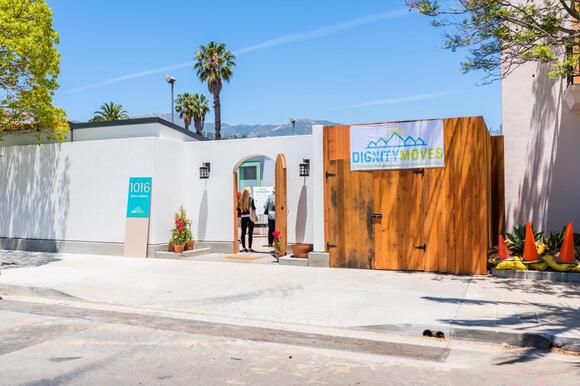
Funk replied: “It’s important to note that the $50,000 allocated for a housing unit is just a fraction of the total project budget. The cost accounts for not only the unit itself but also the requisite supportive services, which can be as high as $30,000 per person per year. The durability and lifespan of our housing units, lasting up to 20 years, make them a valuable investment that spreads costs over an extended period. Our focus is not solely on the housing units but on creating comprehensive, sustainable solutions that truly address the complexities of homelessness. We are enthusiastic about expanding our presence to Denver and other cities, driven by our commitment to making a meaningful impact on homelessness nationwide.”
Some homeless people don’t need help forever
One of the arguments made by Dignity Moves is that not everyone who experiences homelessness needs permanent supportive housing, which can be expensive. “Early on in my exploration of homelessness, a series of realizations propelled me to take action,” Funk said. “One of the pivotal revelations was that the majority of individuals who initially find themselves homeless do not necessarily suffer from severe mental health issues or drug addictions. In fact, fewer than 10% fall into this category.”
In Denver, about a quarter of homeless people identify as having a substance abuse problem, according to the 2022 Point in Time count.
DignityMoves points out that many homeless people “held jobs and were self-sufficient until unforeseen circumstances led to their homelessness,” Funk said. “These individuals are not seeking permanent supportive housing; rather, they require a safe place to rest, recharge, and regain their footing.”
However, the author of this story has seen people placed in permanent supportive housing who were not toilet trained, could not care for themselves, or even eat, and did not take their mental health medications. For these people, even permanent supportive housing is not enough help.
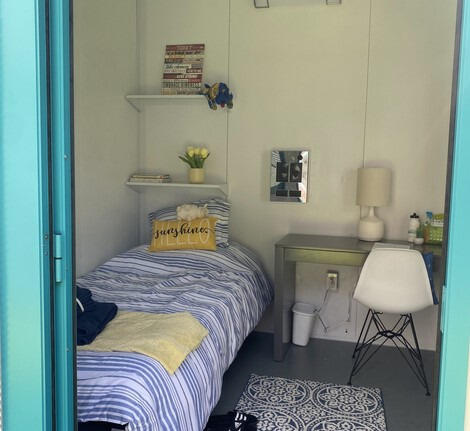
Moving people out of homelessness quickly
Funk said it’s important to move quickly when people become homeless. “Prolonged exposure to homelessness, often spanning years, significantly diminishes their chances of reclaiming self-sufficiency due to the traumas and hardships they endure,” Funk said in an email. “Our mission is precisely to intervene at this crucial juncture, offering a path back to self-sufficiency for those who would otherwise be trapped in a cycle of dependence. It’s important to recognize that a substantial proportion of individuals experiencing homelessness are employed; some of our partner programs facilitate transportation to job sites, where individuals work full-time before returning to shelters or encampments. This underscores the need for an approach that aligns with the reality of the situation, recognizing that not all homelessness stems from chronic mental health issues or addiction.”
Johnston’s plan also calls for swift action. He plans to house 1,000 people by the end of this year. However, some homeless activists say safe outdoor spaces aren’t real housing. DignityMoves provides a sort of hybrid model between safe outdoor spaces and permanent supportive housing.
Is the homeless-industrial complex real?
Dignity Moves was founded by a group of Silicon Valley executives. The author of this story asked Funk whether there truly is a homeless-industrial complex in this country.
“In California, particularly, the cost per unit for permit-supportive housing has escalated significantly, with recent constructions in cities like San Francisco and Los Angeles surpassing the million-dollar mark per unit,” Funk replied. “This situation has given rise to concerns about an emerging industrial complex focused on these ventures. DignityMoves aims to challenge this complex, as we believe that it is unnecessary to allocate such exorbitant funds, approximately a million dollars per unit, for each homeless individual. As a taxpayer, I find this approach untenable. Our mission is to reorient the narrative and advocate for the prominence of interim housing solutions, which we believe should often supplant expensive permanent supportive housing.”
Funk described the economics of homeless housing. “There are varied perspectives to consider when discussing the economics and motivations behind the construction of permit-supportive housing,” Funk said in the email. “Firstly, it is worth acknowledging that many of the organizations and developers involved in building such housing are not driven solely by financial gain. A significant portion of them operate as non-profit entities, genuinely striving to make a positive impact. While it’s true that certain parties may profit from the construction of high-priced housing units aimed at addressing homelessness, such as construction firms and unions, there is also an element of financial interest from entities like Wall Street due to the profitability of tax credits and financing associated with these projects.”


